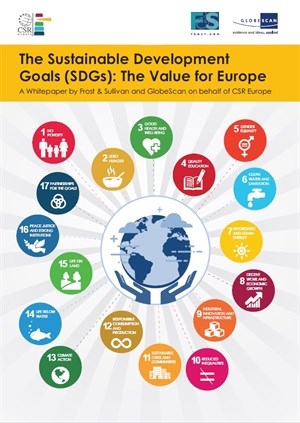
Related
Top stories


ESG & Sustainability#BudgetSpeech2026: SRD grant unchanged, other Sassa social grants see hike
15 hours



More news












ESG & Sustainability
South Africa’s carbon tax should stay: climate scientists explain why










The research found that awareness of SDGs is often concentrated at top management level or amongst those in sustainability functions, while middle managers are disconnected from sustainability strategies. This has resulted in poorly implemented sustainable practices across the globe.
Experts believe middle managers could hold the key to reversing this trend.
Mid-level managers are some of the primary influencers of behaviour within organisations, so their involvement in any strategy is essential, says Jenny Boxall, who runs the New Manager Programme and the Programme for Management Development at the UCT Graduate School of Business (GSB). “The greatest strategy in the world is worth little if it is not implemented effectively,” says Boxall, “That’s why the role of middle managers is crucial.”
This is not only the case for sustainability strategies but all aspects of organisational strategy, explains Boxall. Because mid-level managers have moved past self-management and towards management of others and organisational management, they have to juggle multiple functions in multiple directions. They influence staff and frequently perform a make-or-break role in several areas that can affect productivity, profitability and sustainability – of both the business and the broader environment.
“Middle management is an extremely demanding and challenging position,” Boxall explains. According to Boxall, it is becoming critical for organisations to invest in the careers of managers at junior and middle-to-senior level to enable them to move effectively through the leadership pipeline. Managers, she points out, are as important to the economy as entrepreneurs.
Boxall is not the only expert calling for greater investment in the talents and influence of middle managers. Forbes reports that managers are increasingly stressed, tired and insecure in their jobs. This trend is markedly more severe in junior and middle managers than senior managers.
Yet middle management has been called “the most important” leadership role when it comes to driving the behaviour of employees overall. Research shows that middle managers have a profound impact on the success of a business, affecting factors like absenteeism, staff turnover, recruitment and productivity. Previous research by UK company Business in the Community identified middle managers as instrumental in increasing employee motivation and reducing stress and absenteeism.
Sustainability, too, falls under this umbrella. An earlier study by Frost & Sullivan, in addition to other research, has shown that sustainability is a competitive advantage, which means the gap in middle-manager buy-in represents a key opportunity for businesses to drive productive change in employee behaviour.
Given middle managers’ potential to influence, world leaders have appealed to businesses to get them on board with sustainability strategies urgently. Following the release of the CSR Europe research, European Commision vice-president Frans Timmerman said that SDGs provide not only a vision for the world, “but also comprise a positive and feasible agenda for us to protect our people and our planet and secure a brighter future for this and future generations. This is a message that businesses are beginning to internalise”. He added that contributing to a better world was simply “the right thing to do”.
Boxall agrees that middle managers are key influencers in behavioural change, but believes organisations must bear in mind the evolution of a manager’s development if they are to drive business success at all stages of their career. “Managers require a different skill set at each stage of their career path,” says Boxall. “It is in an organisation’s best interest to develop this skill set, but also to continue to engage with managers throughout their career to ensure that management at all levels is contributing to implementing strategic objectives.”
“Middle management can be the secret weapon in an organisation’s arsenal,” she adds. But only if they are trained, nurtured and mentored continuously. Unfortunately, the development of many managers is still neglected.”